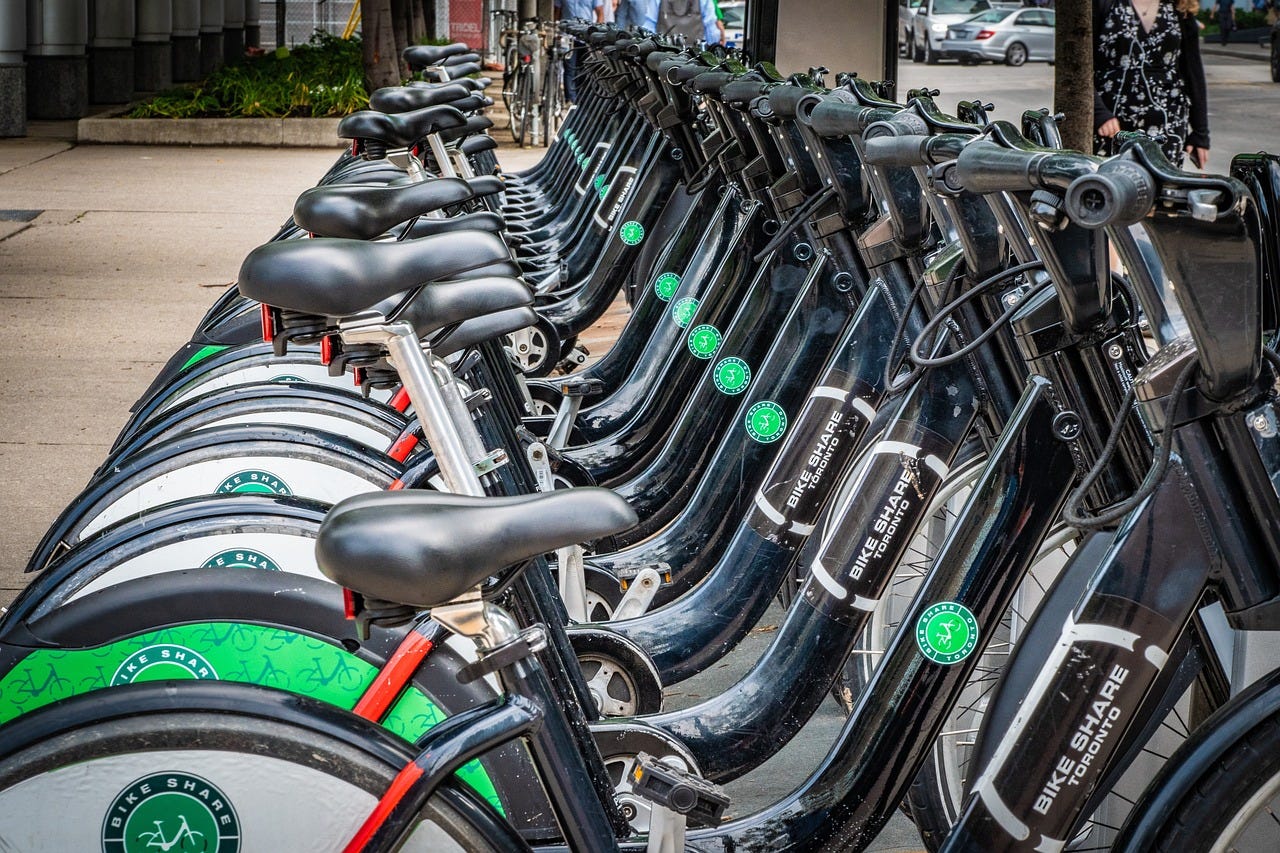How accessible are your city bikes & scooters?
Most North American bike share systems require customers to be at least 18 years old. Some systems allow a parent or guardian to check out a bike for a 16- or 17-year old child.
Let the kids ride!
Many children are physically able to safely control bike share equipment. It’s time to end the prohibition of kids on shared bikes.
Fun fact: I worked as the director of mobility strategy for a bike share startup just as the dockless systems were about to roll across the country. I understand the operations and marketing of bike share, but my outlook on integrating with a larger transportation system came from 20 years in transportation planning.
Part of my role as a consultant is to help cities increase travel options as widely as possible. Most have some type of goal to reach all ages and abilities, and shared fleets go a long way to deliver on that promise.
Everyone wants an accessibility label on their bike share, but few deserve it.
“We’re here to serve the community” and the like. But one of the overlooked issues with shared mobility, especially bikes and scooters, is age discrimination. Most North American shared mobility systems require riders to be at least 18 years old. Some systems allow a parent or guardian to check out a bike for a 16- or 17-year old child.
“But they can’t pay” is the excuse I’ve heard most over the years. That is, children aren’t allowed to use credit cards, therefore they can’t join bike share systems.
Children aren’t paying for products and services on mobile devices?! Pardon me as I roll my eyes at this argument. App-based transportation is not an anomaly, it’s mainstream. This should be a parenting issue, nothing more.
Many bike share operators offer cash options. Some older systems use payment kiosks, but most partner with convenience stores, libraries, or community centers. You don’t have to use a credit card or mobile phone to use bike share in cities across America.
16-year old children already buy gas and operate two-ton automobiles.
“Kids shouldn’t be using bike share or electric scooters.” Sometimes grown-ups are bold enough to say what they mean. I suppose it’s easy when the subject is nearly powerless.
Both of my kids are taller and stronger than grandma. When I was their age, my mom was asking me to help reach dishes from top shelves and to open sealed jars. This isn’t a Gen Xer reminiscing about the good old days of free-range mobility across suburbia. Physical fitness shouldn’t be a barrier to use bike share. In fact, getting physically fit is a reason to encourage both kids and adults to use bike share.
Not all kids have the same transportation choices. Single-parent households and dual-parent households where both parents work full time share some of the same challenges. Transporting young people during the day is a challenge, and electric scooters or bikes can provide relief.
More parenting, less governance.
Our kids should have access to bike share without breaking the law. Any child who can reach the pedals and control the handlebars should be permitted. Again, it’s a parenting issue, not a governance one. Some cities have quietly chosen to look the other way when middle schoolers are using these systems. Good for them!
I look forward to the day when mobility prohibition is a mere blip on the country’s timeline.


